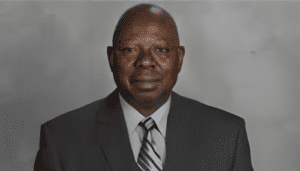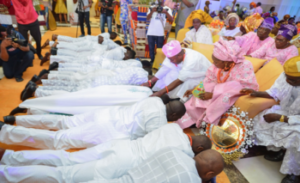
Combating counterfeiting through product authentication
Counterfeiting, the act of imitating, making illegal copies, or making something look like the original, usually goes with the intent to steal, destroy, deceive or even replace the original.
The Organisation for Economic Co-operation and Development reveals that African countries are target destinations for counterfeit goods such as pharmaceuticals, foods and beverages.
Unfortunately, the ultimate victims of counterfeiting are the consumers, who receive poor-quality goods and are exposed to health and safety dangers.
In spite of the potential economic benefits of the African Continental Free Trade Area (AfCTA), there have been concerns by some stakeholders that it could lead to an increased rate of counterfeiting and dumping of substandard products.
No doubt, counterfeit products endanger health as consumers even death when they ingest fake food, drinks or drugs, or use counterfeit cosmetics.
Apart from the health and safety risks, industries worldwide also lose a lot to counterfeiters.
Those losses, according to a report by the Organisation for Economic Co-operation and Development, not only affect the producers of genuine items but also involve social costs.
The World Customers Organisation believes that counterfeiting drains an estimated amount of 600 billion euros annually from the global economy.
To put it to proper perspective, this is equivalent to the loss of about five to seven per cent of trade in brand–name goods worldwide.
In addition, it is estimated that around 2.5 million jobs are lost due to counterfeiting across G20 economics alone.
This leads to a loss of tax revenue to governments, income loss to local manufacturers and loss of jobs in the employment that would have otherwise been generated.
It is estimated that trade in counterfeit goods is now worth more than five per cent of world trade.
Experts say that governments also incur large costs in destroying and prosecuting defaulters.
For instance, the Nigerian Copyrights Commission (NCC) says the country loses N918 trillion ($3 billion) annually to the activities of pirates.
As of April 2022, the National Agency for Food and Drug Administration and Control (NAFDAC) said that Nigeria has a 15 per cent of drug prevalence.
The Standards Organisation of Nigeria (SON) estimates that about 75 per cent of auto spare parts in the country are fake.
Experts attribute the increasing wave of counterfeiting to advanced technology, increased international trade, emerging markets and an increased share of products that are attractive to imitate.
However, they say that concerted efforts are critical in combating the distribution of counterfeit goods in Nigeria.
National President, Nigerian Association of Small and Medium Enterprises (NASME), Dr. Abdulrasheed Yerima said such efforts are necessary to protect the society, economy and environment from the threats counterfeiting poses.
A consumer, Mr Fidelis Edeh, believes that due to the damages caused by substandard products, consumers must join in the fight against counterfeit products by consciously rejecting them.
“If counterfeiters must face stiff penalties, consumers must report illicit products/dealers to SON,” Edeh said.
According to Ms Annabel Nkeruem, a public health analyst, consumers have a role to play in destroying counterfeit products and bringing their merchants to book.
As a regulatory body in charge of ensuring the maintenance of standards in local and imported products, SON said it is demonstrating capacity in combating counterfeiting, fake and substandard products.
One of the ways through which the organisation is fighting the menace is by initiating the Products Authentication Mark (PAM).
According to the Director Product Certification, SON,Mr Tersoo Orgudwem, the organisation introduced the SON Conformity Assessment Programme (SONCAP) to ensure that all imported products are of acceptable quality.
Orgudwem said for the international community not to assume Nigeria is creating a trade barrier; SON also introduced MANCAP for the locally manufactured goods in Nigeria.
“The world has become a global village, and Nigeria is part of that village, and we cannot run away from it, so we have introduced measures, particularly for imported goods.
“This ensures that Nigeria does not become a dumping ground for any other country. So, if they want to trade with us, they should give us what they can use in their country.”
According to Orgudwem, the consumer is fully involved in enforcing quality by scanning the PAM or sending a short message (SMS) to verify the product’s status before purchasing a product.
According to him, PAM is designed such that the product has a stamp on it and consumers have the QR code either on their smartphones or there is a number on the stamp on the product.
“If you don’t have an Android phone or an IOS phone, you can send the number of the product on the stamp to a toll-free code 281.
“And within five seconds, they will return a message telling you that the product is certified by SON and is good for use,” he said.
According to Orgudwem, Nigeria makes up about 20 per cent of Africa’s population, estimated at 220 million, making it a target market for both genuine and fake products.
Addressing the challenge posed by counterfeit products is a difficult task and an economist, Margaret Attah, says all relevant bodies should partner to ensure that the battle is won.
According to Attah, tackling counterfeit products successfully will massive benefit the economy because it will stimulate the growth of industries, attract investment and reduce unemployment.
While some stakeholders commend SON for initiating PAM to mitigate substandard products, others urge the government to ensure the prosecution of offenders.
The Director-General of SON, Farouk Salim, said the organisation was working with the National Assembly to amend its Act to make for more successful prosecution of counterfeiters.
“We are already working with NASS to amend the existing Act to increase the penalties such as jail terms for defaulters,” he said.



